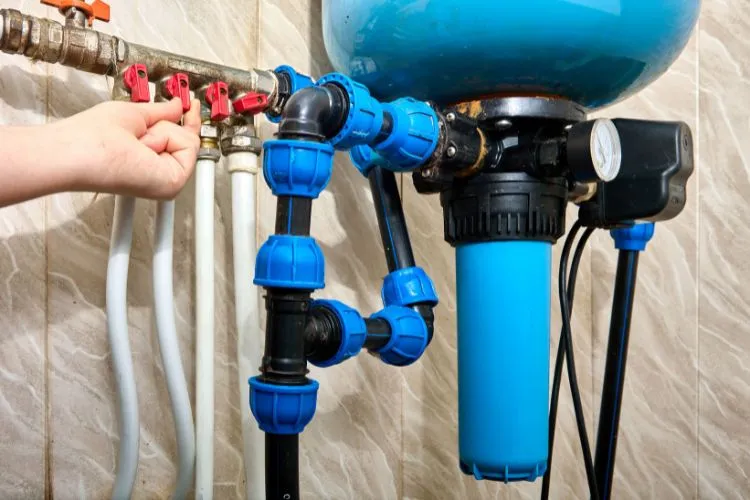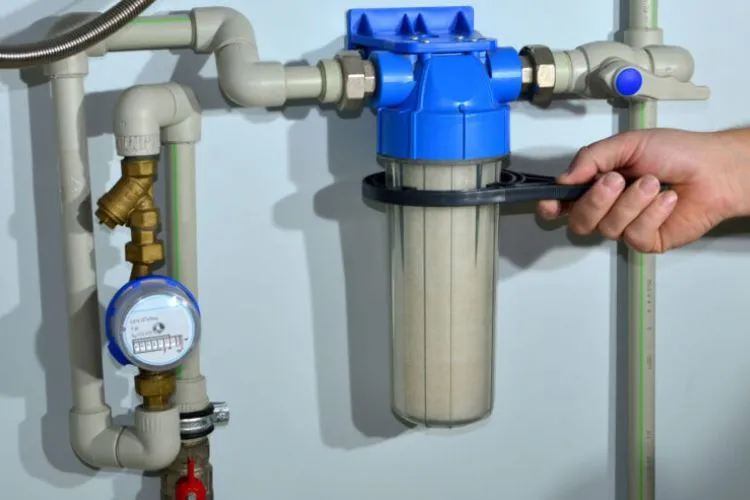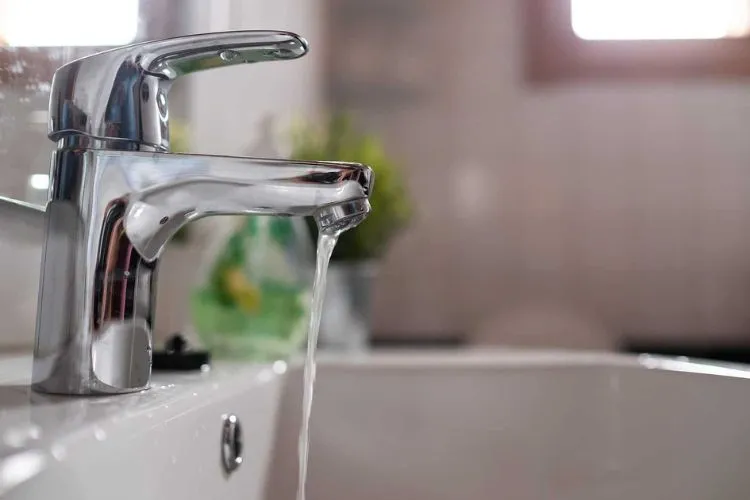Access to clean, safe water is a cornerstone of healthy living, prompting many households to install whole house water filters.
These filters ensure that water in every corner of your home, from the bathroom to the kitchen, is purified and safe for all uses.
Despite their benefits, one common concern among homeowners is whether such systems might lead to a decrease in water pressure.
So, does a whole house water filter reduce water pressure?
This article delves into this issue, examining the mechanics behind whole house water filters, their effects on water pressure, and strategies to manage and mitigate any adverse impacts.

💦 Understanding Water Pressure
Water pressure is essentially the force that causes water to flow through pipelines and finally out of taps and showerheads.
It’s measured in pounds per square inch (PSI), and most homes operate efficiently between 40 to 60 PSI.
Various factors can influence this pressure, including the elevation of a property, simultaneous use of water in multiple appliances, and the overall health of your plumbing system.
💦 How Whole House Water Filters Work
Whole house water filters are installed directly onto the main water line coming into your home. This ensures that all water is treated right at the entry point, ensuring consistency in quality.
These systems can feature various types of filters, including sediment filters, which catch physical impurities like dirt, and carbon filters, which are used to remove chemicals and unpleasant tastes or smells.
The size and type of filter are critical in affecting efficiency and flow rate, which in turn can have implications on water pressure.
💦 Does A Whole House Water Filter Reduce Water Pressure?
Direct Impact
Installing a filter can directly influence the water flow in your home, mainly if the system is not aligned with the house’s water usage needs.
Filters come with a nominal flow rate, and if a household’s demand exceeds this rate, a drop in water pressure is likely.
Furthermore, smaller or undersized filters may clog more easily, exacerbating pressure issues over time.
Indirect Impact
The efficiency of water filters degrades as they capture more debris. Without regular maintenance, filters can become clogged, reducing water flow and pressure.
Therefore, keeping filters clean and replacing them as needed is crucial for maintaining optimal water pressure.
💦 Factors Influencing Water Pressure Impact

The extent of the impact on water pressure by a whole house water filter hinges on several variables. Notably, the filter’s size and capacity relative to the household water usage play a significant role.
Larger households or those with high water usage must opt for filters designed for higher flow rates. Pre-existing issues with water pressure in your home can also be magnified by the installation of a water filter system.
💦Minimizing the Impact on Water Pressure
Regular maintenance is key to ensuring your water filtration system does not adversely affect water pressure.
This includes prompt replacement of filters according to the manufacturer’s guidelines and possibly flushing the system to ensure peak performance.
For homes already struggling with low water pressure, the addition of a booster pump in conjunction with the water filter system can help alleviate pressure drops.
💦Troubleshooting Low Water Pressure After Installation
When experiencing low water pressure after installing a whole house filter, several steps should be taken to diagnose and resolve the issue.
Begin by confirming that the filter system was installed properly, without any installation errors that could restrict water flow.
Inspect the system for leaks, as these can significantly diminish water pressure.

The filter element itself should also be examined; if it’s clogged or nearing the end of its lifespan, replacing it may restore pressure.
However, if these actions don’t improve the situation, the problem may lie deeper within your home’s plumbing.
This could be due to mineral buildup or a malfunctioning pressure regulator.
A professional plumber can perform a thorough inspection, identify the root cause, and implement the appropriate fix to get your water pressure back to normal levels.
💦Real-Life Examples
Consider the experience of a family in Arizona who installed a sediment filter to improve their water quality. They soon noticed a marked decrease in water pressure.
On consultation with water treatment experts, it was revealed that the filter was not suitably sized for their household’s water usage.
Upgrading to a larger capacity filter designed for higher usage resolved their water pressure issue, restoring flow to its optimal level.
💦 Frequently Asked Questions (FAQs)
Do multiple water filters in a home reduce water pressure further?
Yes, every additional filter adds resistance to your plumbing system, potentially reducing flow. It’s crucial to select efficient multi-stage filters and maintain them well to mitigate this effect.
How often should I replace my filter to maintain optimal water pressure?
Replacement schedules vary based on water usage and contamination levels. Adhering to the manufacturer’s guidelines, typically every three to six months, is advisable.
Are certain whole house water filters better for water pressure?
Yes, some filters are designed for minimal impact on water pressure. It’s important to choose systems that can handle or exceed your household’s flow rate needs.
What should I do if I observe a sudden drop in water pressure after installing a new filter?
Initially, check for installation errors and the correct sizing of the filter. Persistent problems may require professional assessment.
How does the micron rating of a filter affect water pressure?
Filters with lower micron ratings offer finer filtration but may reduce flow rate and pressure. Balancing filtration needs with flow requirements is key.
Conclusion:
While concerns regarding whole house water filters and their potential to reduce water pressure are valid, understanding the factors at play and how to manage them can alleviate these worries.
Through proper system selection, regular maintenance, and addressing any pre-existing water pressure issues, homeowners can enjoy the benefits of purified water throughout their homes without significant compromises in water pressure.
When faced with persistent pressure problems, always consider consulting with a water treatment or plumbing expert to achieve a solution tailored to your home’s specific needs.

Devon Shorts, a seasoned expert with over a decade of experience in water safety, shares valuable insights on this blog “Aqua Safety Plus”. Trust his expertise to keep your water clean and your family safe.
